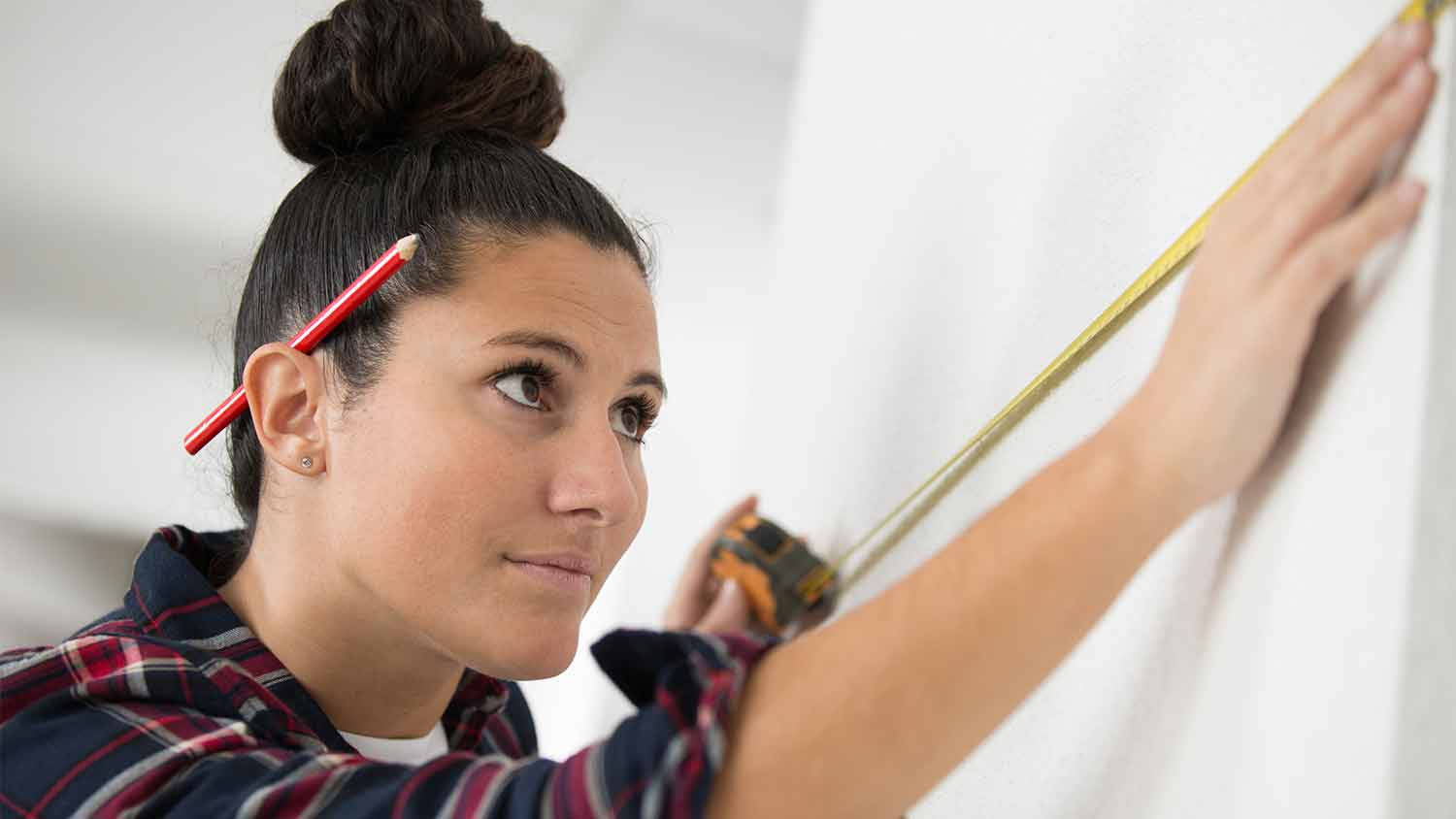The Ultimate Handyperson Tool List to Nail the Job
Don't tackle a project without these tools


Just like a surgeon needs medical instruments to perform procedures, a handyperson needs the proper tools to ensure the success of home projects. From cutting and drilling to measuring and fastening, these are the ultimate handyperson tools you need in your tool belt.
1. Cordless Power Tool Combo Kit

With a power tool combo kit, you’ll never need to go back into your van (or garage) to get another power tool again—because they’re all neatly packed into one tool bag.
Whether you’re drilling holes, driving screws, cutting wood, or tightening a leaky pipe, a cordless power tool kit keeps your gear organized for easy access. Plus, with cordless technology, there’s no need for an extension cord or an electrical outlet.
Although items in combo kits vary, here’s what you’ll find in most of them:
Drill and driver bits
Circular saw
Recipro saw
Orbital jigsaw
Battery pack and charger
Work light
Pro Tip: Remember to charge your power tools the night before so you have enough juice.
2. Claw Hammer
The claw hammer is a must for any handyperson or DIYer. A hammer with a rubber handle helps you get a firm grip while you’re driving nails into place, and the curved claw is made for removing bent nails.
Hammers with wood handles tend to split over time, so consider investing in a claw hammer with a fiberglass handle for better wear.
3. Screwdriver Set
A screwdriver set with a wide range of flathead and Phillps driver sizes makes the perfect handyperson toolset. And if it comes with rubberized grips and magnetic tips, even better!
Use the screwdriver set to hang mirrors, mount TVs, install light fixtures, assemble furniture, and tighten screws on kitchen cabinets.
4. Tape Measure

A tape measure is an essential tool when you need to measure windows, walls, floors, or furniture that needs to fit into a space.
Choose a tape measure that’s at least 25 feet long. Smaller tape measures can be difficult to maneuver, get all twisted up, and their locks can break. With a heavy-duty tape measure with some length, you’ll be good to go.
5. Plier Set
A plier set helps you get a good grip on an array of home improvement projects. Made from steel, plier sets come with adjustable and non-adjustable pliers for different purposes.
Here are the uses for the pliers you’ll find in most plier sets:
Long pliers: grips small objects and twisting wires
Needle nose pliers: reaches into tight spots
Slip-joint pliers: adjusts nuts and bolts
Tongue-and-groove pliers: tightens plumbing pipes
Side-cutting pliers: strips insulation; cuts and splices wires
Adjustable wrench: turns nuts and bolts
Make sure your pliers set comes in its own case so you can keep everything secure in place.
6. Putty Knife
Most handypeople carry a few putty knives in their toolbox. While some prefer to purchase knives separately, others buy a putty knife kit that contains around five knives ranging from 2 inches to 1 foot.
Putty knives serve a variety of functions, including:
Applying and smoothing spackle
Spreading compound along joints between drywall sheets
Scraping loose paint to prepare interior and exterior surfaces for painting
Reglazing windows
Filling nail holes
Removing wallpaper from tight spots (like door casings)
7. Stud Finder
A stud finder is an essential handyperson tool when mounting heavy items, like picture frames, on walls. You don’t want that brand new flat-screen TV or 100-pound antique mirror to end up on the floor in pieces!
There are three kinds of stud finders: magnetic, electronic, and radar-powered.
Magnetic stud finders detect studs by attracting nails and screws within the studs, like magnets to metal
Electronic stud finders rely on sensors that detect a change when they move over a stud
Radar-powered stud finders use electromagnetic waves to find studs, but they also can detect wires, leaks, plumbing, and motion from pests within the walls, too
8. Level

There's nothing worse than hanging a set of beautiful cabinets or a new piece of art only to stand back to admire your handiwork and realize …. it’s crooked. Using a level is a simple way to keep everything you hang straight and even. For a level that lasts through numerous projects, consider one made of metal instead of plastic.
9. Wet-Dry Vacuum
Home improvement projects can accumulate a lot of dust and debris, especially if you’re taking down walls or tearing up countertops. A broom or house vacuum doesn’t always pick up the mess, so a wet-dry vacuum is a great investment. Leaving a customer a clean, dust-free home is common courtesy—and they’ll appreciate your thoughtfulness.





- Power Washing
- Greenhouse Companies
- Wood & Pellet Stove Repair
- Vinyl Siding Repair Contractors
- TV Antenna Services
- Ceiling Repair Companies
- Wall Repair Services
- Emergency Handymen
- Countertop Repair
- Vinyl Siding Cleaning
- Furniture Assembly
- Trampoline Assembly
- Carport Repair
- TV Mounting
- Chain Link Fence Repair
- Picture Hangers
- Electrical Handymen
- Handymen Plumbers
- Mailbox Installation
- Treehouse Builders
- Door Refinishing
- Aquarium Services
- Grab Bar Installation
- Caulking Services
- Grill Assembly
- Remodeling Tools Every DIYer Should Be Familiar With
- 20 Tools for Electrical Work To Keep In Your Toolbox
- What Does a Handyman Do? 8 Jobs Perfect for a Handyperson
- Helpful Tips for Hiring a High-Quality Handyperson
- 11 Handy Tips and Tricks to Help With Your Next Home Project
- These Are the Best Tools for Cleaning Hard-to-Reach Areas
- How to Find a Wall Stud With and Without a Stud Finder
- Learn How to Clean Your House (and Maybe Even Have Fun Doing It) With These 27 Tips
- 14 Home Renovation Tips for a Stress-Free Project
- Why Hiring a Handyperson to Tackle Your To-Do List Is a Genius Move















